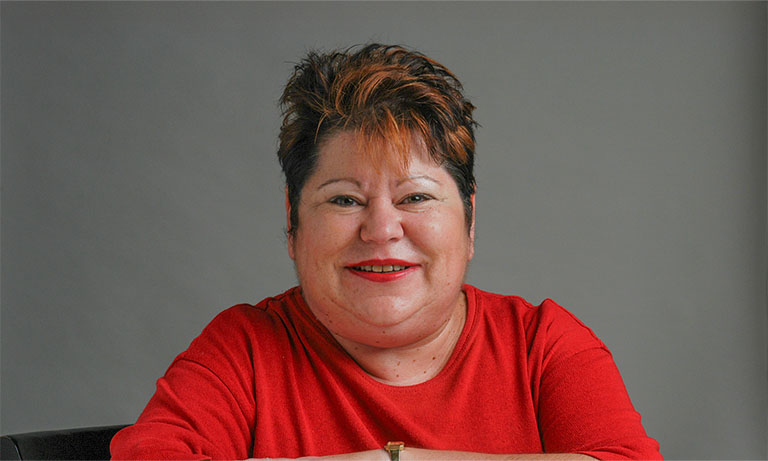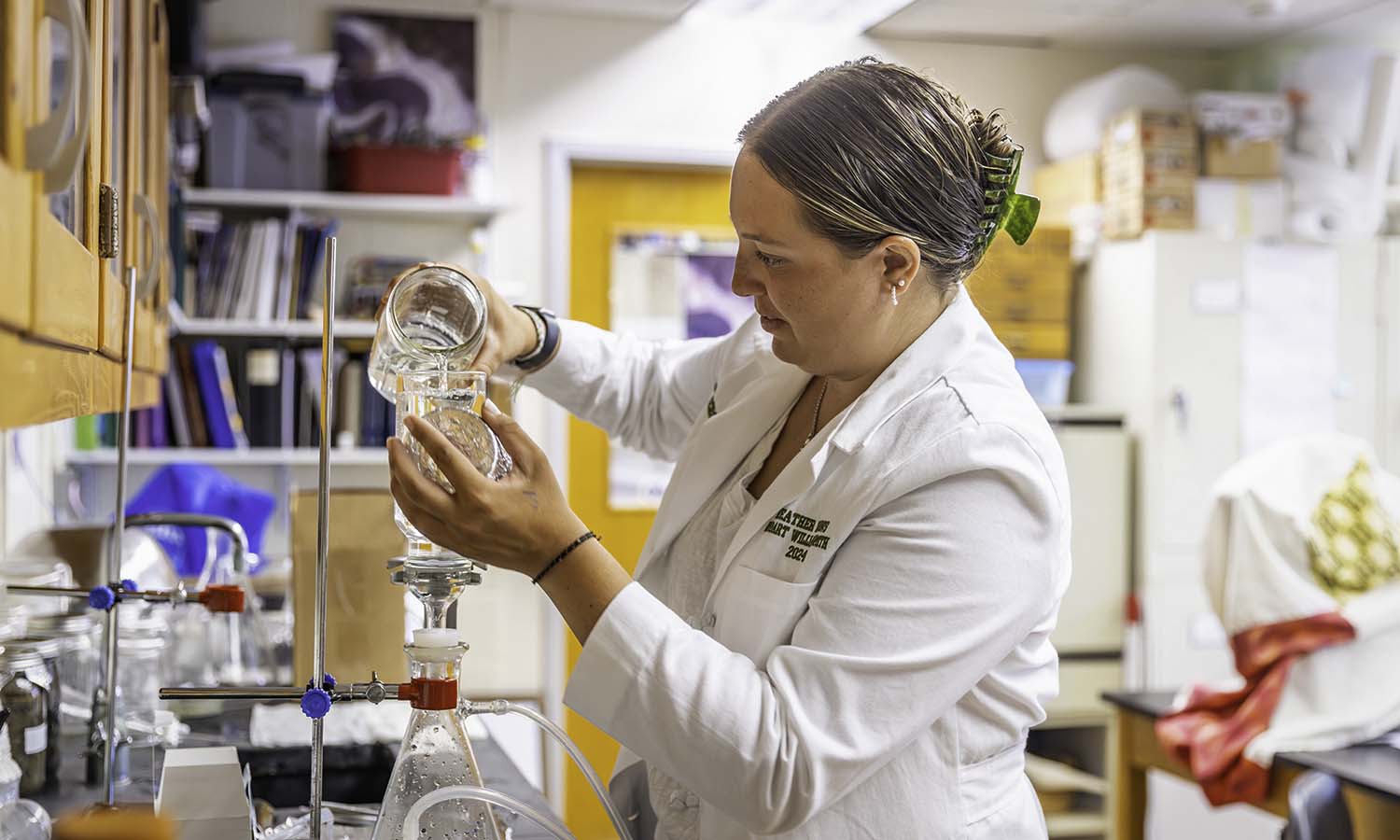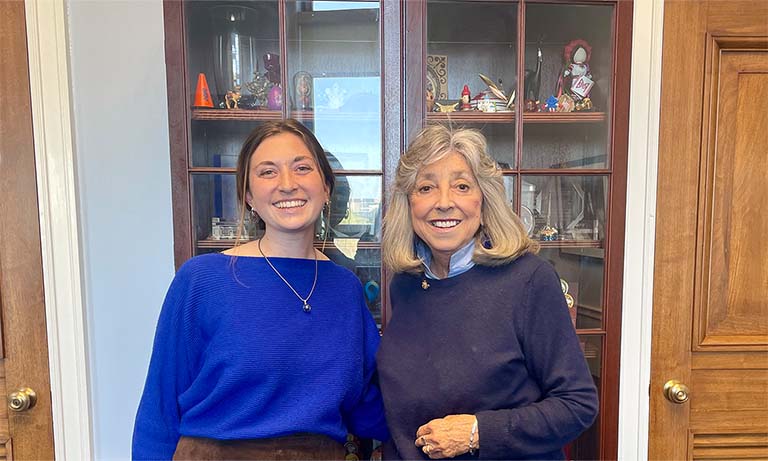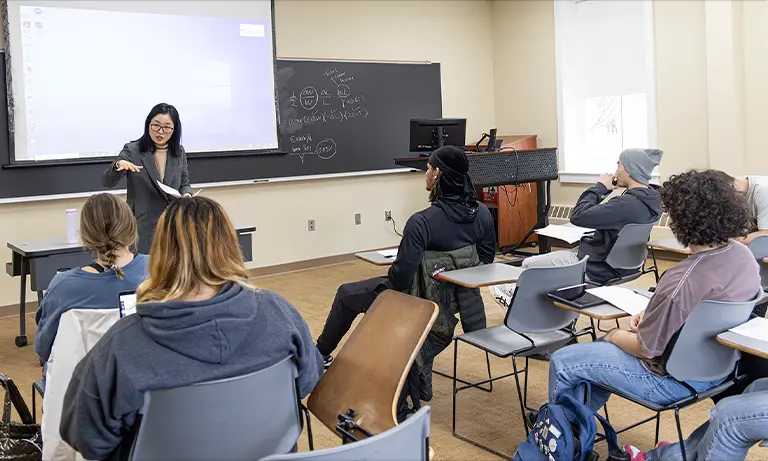
HWS News
17 June 2024 • Faculty Economic Inequality: Bridging Theory and Practice
In ECON 210, students study economic disparities while supporting solutions in Geneva.
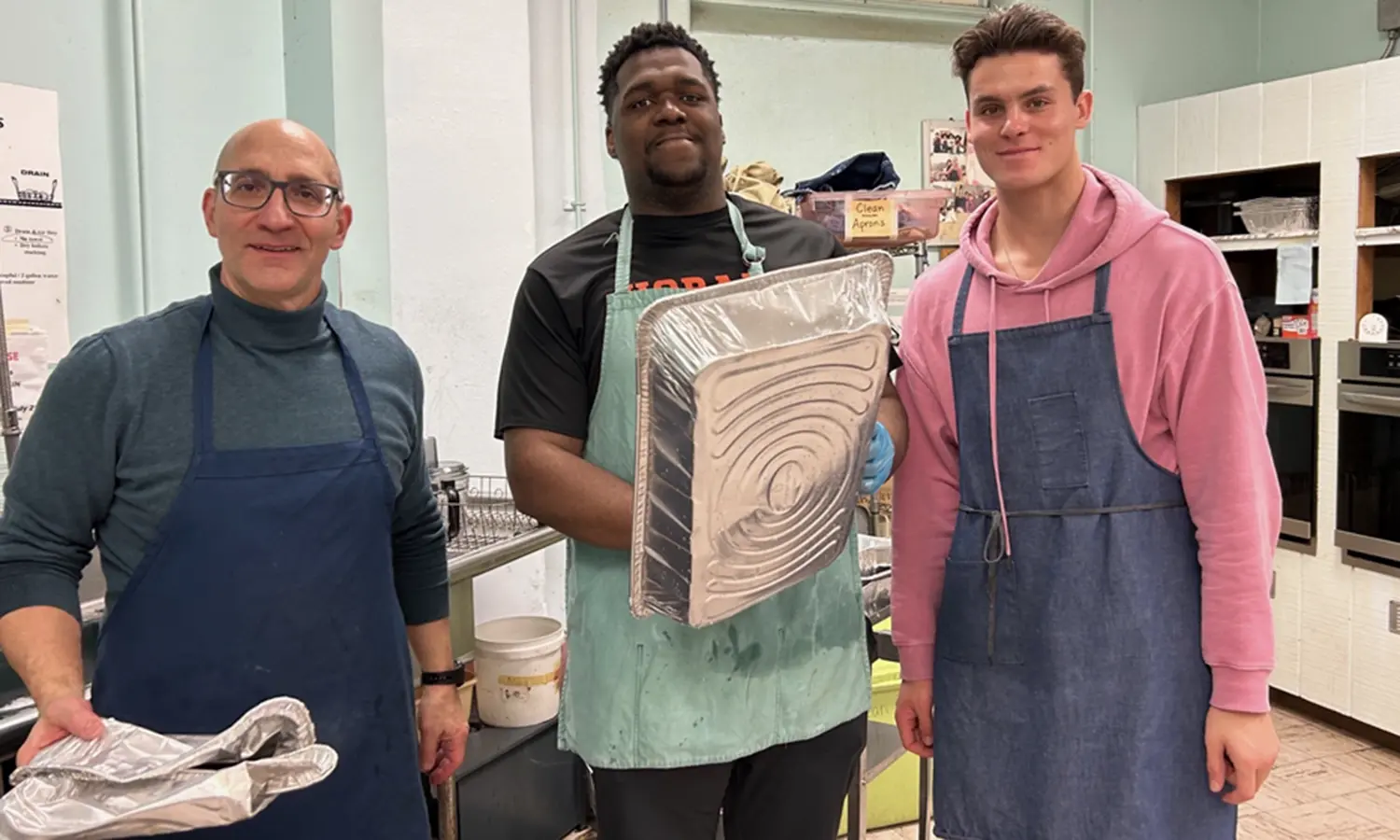
As students were exploring the causes and effects of economic inequality in the classroom with Assistant Professor of Economics Sooyoung Lee, they were also working in the Geneva community to support programs that offer local solutions to the challenges posed by economic inequality.
Throughout the semester, students studied the relationships between income inequalities, labor market structures and global production networks. Simultaneously, they partnered with community organizations devoted to issues like food insecurity, educational opportunity, young families and migrant labor.
Asher Landis ’27, an economics major and data analytics minor, served as an English tutor with the Rural Migrant Ministry, an organization supporting farmworkers, rural workers and disenfranchised members of the community. “Learning a second language with a busy schedule and much later in life is extremely difficult, so we are happy to help…every step of the way,” says Landis.
Economics major Connor O’Neil ’27 volunteered with the Arc Ontario College Experience Program, which provides young adults with disabilities the support, skills, confidence, internships and work experiences they need to gain independence. O’Neil also joined the Geneva Community Lunch Program, serving nutritious meals at Geneva Methodist Church. He says the experience gave him “a greater appreciation for helping others who are in need,” and inspired him to continue volunteering through his time at HWS.
Dorian Paki ’27, an economics major, volunteered at the Epic Zone Program, a youth drop-in center committed to fostering growth, empowerment, and support among young individuals. Engaging with high school and middle school students, Paki enjoyed creating meaningful connections while providing homework assistance and sharing moments on the basketball court.
Reflecting on his experience, he highlighted the significance of being a supportive academic resource for these students. “The most memorable aspect of my volunteer experience is being an academic tool for the kids once they leave school,” Paki says. “With most of the kids struggling in specific subjects, I like being able to clarify whatever they find difficult to understand.”
Paki says his involvement with Epic Zones helped him grow as a leader, communicator and problem solver — skills that are proving invaluable as he studies the effects of the First 1000 Days Promise program, a collaboration between a Geneva community groups and social service agencies to support infants in their earliest years. Paki hopes his findings will aid in securing further funding for the program's ongoing impact and success.
Top: Assistant Professor of Economics Sooyoung Lee teaches a class in Stern Hall.

